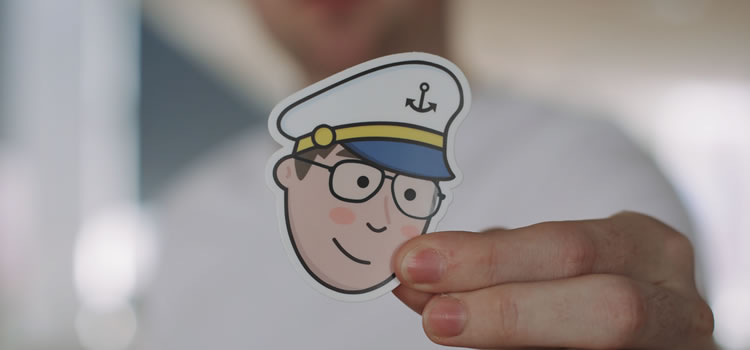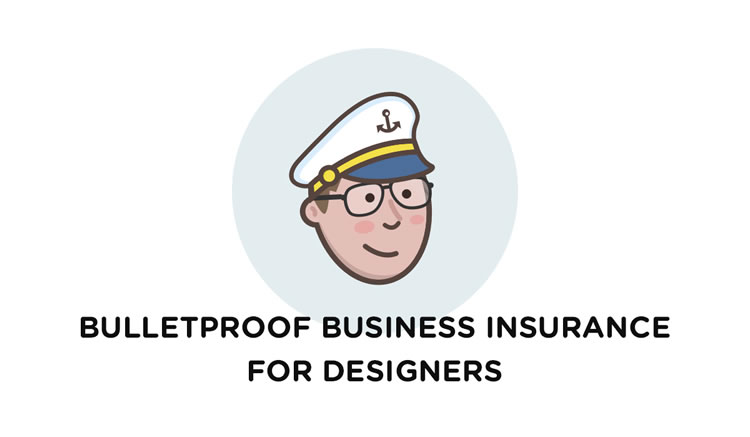Q: What’s less sexy than business insurance?
A: Going out of business because you didn’t have business insurance.
Designers, developers, artists — in fact, all kinds of creative workers who are self-employed — typically excel at creative problem-solving, at least when it comes to clients.
But it’s often a little more difficult to separate fact from fiction when it comes to insurance for your creative business. That’s why in this post, we’re taking a closer look at five of the biggest myths about business and professional indemnity insurance for creative workers.
Myth #1: “I don’t need insurance, I have all my clients sign a contract.”
Truth: Contracts are great! All creative workers and freelancers should absolutely have them and use them with every new project and client.
But a contract isn’t a cure-all for anything that might go wrong in your business relationships. Contracts simply set forth what the obligations and rights of the parties are, in the event that something goes wrong.
If you as a designer have a contract calling for prompt payment upon delivery of your work, that means your client is legally obligated to pay you when you submit the design.
It doesn’t force the client to pay you, though, especially when the client then argues that she shouldn’t have to pay you because you turned the work in a day late and the client threatens to bring a claim against you.
For that, you’ll probably need a lawyer. And you’ll have to pay for that lawyer’s services. Insurance can step in to cover those costs.
Myth #2: “Business insurance? I’m a freelancer! It’s too expensive!”
Truth: Believe it or not, business insurance doesn’t necessarily set you back all that much. For example, Jack, an insurance provider for freelancers, says U.K. freelancers can expect to pay around £14 a month for £1,000,000 of professional indemnity coverage.
Compared to the potential cost of not having coverage, that’s pretty reasonable.
Myth #3: “Business insurance is only for big companies. I’m just a solo designer/artist. I don’t need that.”
Truth: Freelancers and creative workers can benefit from business insurance in a number of awkward, uncomfortable situations. And those situations are far more common than you might think.
After all, even when they’ve done everything they reasonably could do to prevent disruptions and challenges, designers sometimes turn in work late. Developers get accused of negligence. Artists get accused of copyright infringement.
One of the most famous examples of the latter conflict happened with the Barack Obama ‘”Hope” poster. You’ve seen it — anyone who was conscious and paying even a little attention in the 2008 U.S. presidential campaign saw it. The artist used a photograph without an explicit license (or permission) as the basis for what’s become an iconic image.
It became famous. So did the artist. And then?
Eventually, a whole host of legal issues arose, ultimately resulting in a pretty steep fine.
Professional indemnity insurance in the “Hope” poster case would have covered the legal fees and the $25,000 fine, to boot!
Myth #4: “It’s a luxury I don’t really need and can’t really afford right now.”
Truth: Can you afford to have a client skip out on a £6000 invoice and bring his own claim against you, threatening your hard-won reputation with other existing and future clients?
Basically, business insurance such as professional indemnity coverage lets you exchange a big unknown risk with potentially catastrophic consequences for a much smaller financial obligation — around £200 a year, in Jack’s case.
Sure, the catastrophic event may not occur, but chances are that something like that will happen to you in the course of your career. Most freelancers struggle to get paid at some point! It’s just the nature of the beast.
And when it does, would you think it an extravagance to be protected against that potentially huge loss?
Or would you think, “Thank God I had coverage”?
Myth #5: “My clients pay me, so I can’t really see what use it would be to me as a freelancer.”
Truth: Unpaid invoices are a very common problem for freelancers. But if you’re one of those super-fortunate creative workers who never have to worry about getting paid, you still face some risks that professional indemnity insurance can help you with:
- Unintentional copyright infringement
- Careless mistakes
- Defense costs
- Loss of important documents
- Mishandled client information
- Unintentional breach of contract
Designers and freelancers should have business insurance for three very simple reasons:
First, any professional who provides advice or services to clients is only human (we’re assuming!), and thus subject to human error. That means careless mistakes, late work submission, and other totally understandable circumstances can mean your client loses income or suffers some kind of loss. For you, the professional, that can mean legal claims, expenses, and damage to a revenue stream and reputation. Insurance helps protect you and the business you worked hard to create.
Second, it’s increasingly common for savvy clients and customers to require contractual clauses specifying that the designer or freelancer carries adequate insurance. Many B2B clients won’t even think about hiring a freelancer without proof of coverage. Therefore, if you want to be competitive, you need coverage.
Finally, there’s the matter of trust. When you’re professionally insured, you’re viewed as a responsible provider. Your insurance coverage is a badge of trust that improves client confidence.
Get Covered With Jack!
If you’re a U.K. freelancer, designer, developer, or other creative worker, Jack can help you protect your business through its service, With Jack. Jack offers a handy one-premium advantage for freelancers looking to simplify financial matters.
You pay one single fee, , and if you’re not sure what insurance you need as a freelancer, Jack offers a handy interactive insurance-needs analysis tool. It’s free to use, comes with no obligation, and will walk you smoothly through the process of pinpointing exactly what insurance you need and how to get it. Which is a pretty great deal, if you ask me.
This post has been sponsored by Syndicate Ads.
Related Topics
Top

